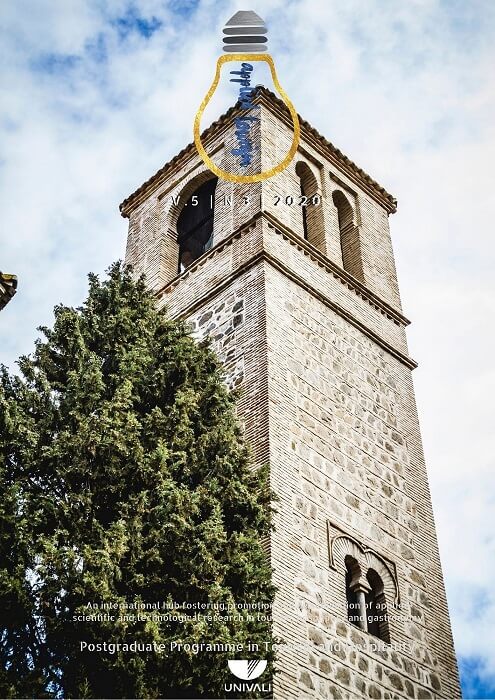

This is a case study on actions to generate jobs and income through historical, adventure, cultural and ecological tourism. Its purpose is to analyze the use of the repressed tourist potential of the ancient Caminhos de Peabiru, or Peabiru Way, a walking trail in the municipality of Peabiru, through the Projeto Caminhos de Peabiru: História, Cultura e Turismo (Peabiru Way Project: History, Culture and Tourism), which was started in 2016. The name of the town of Peabiru, in northwestern Paraná, is steeped in history, as it refers to the legendary Peabiru Way. Historical studies were carried out that led to the creation of the Peabiru Way Project. Hiking trails with varying levels of difficulty were mapped out along the course of the original trails of Peabiru, and taking in sights such as waterfalls, water mines, old buildings, mountains, valleys and rivers. These trails began to attract visitors to Peabiru; initially around ten or twenty visitors on weekends, with the numbers gradually increasing to as many as eight hundred visitors on one particular weekend. Nowadays, the region hosts visitors from the USA, Japan, Spain, Australia, and all over South America. As a result, local bakeries, restaurants, hotel, and gas stations have flourished, generating an increase in local commerce, while fulfilling the initial intentions of generating jobs, income and a sense of belonging and attracting tourists and income to the town. The work is justified by the fact that the Peabiru-PR is classed as a region of poverty, due to land concentration in the hands of a few, social and economic inequality, incipient industry and trade, and stagnant services. Tourism has emerged as a sector with good prospects for the region. Methodologically, this work is characterized as qualitative study, with a literature review of books, magazines and other materials, both printed and electronic, as well as the use of measured data in the application of the Peabiru Way Project in the town of Peabiru-PR. The next step is to train official guides, working voluntarily, with the aim of reducing the number of people, but increasing increase generation and income compared to today's huge flow. Today the Peabiru Way is visited by about one thousand people a month. The Associação Caminhos de Peabiru de Artesenato e Culinária (Peabiru Way Handicrafts and Culinary Association) was created, which is marketing specific products and generating opportunities for street vendors to earn more income. It was noticed that through the work already carried out, even though it still in the initial stages, there have been positive effects on the local economy, bringing more income for the population, restaurants, bakers, and gas stations and creating direct and indirect jobs during the weekly events, particularly the walks along the Peabiru Way in the form of Acquatrekking.




AGUILAR, Jurandir Coronado. Conquista Espiritual. A história da evangelização na Província do Guairá na obra de Antonio Ruiz de Montoya, 2002. (1585-1652).
BASSI, Luiz; KLEIN, João Carlos; MAFRA, Wanderley; ROCHA, Arléto. Histórias de famílias de Peabiru-PR. Campo Mourão: Kromoset, 2012.
BOND, Rozana, História do caminho de Peabiru.v. 1. Aimbere: Florianópolis: 2004.
BRITO, Marcelo. A certificação de destinos patrimoniais na qualificação do turismo cultural no Brasil. Rev. do Patrimônio Histórico e Artístico Nacional. nº 40. Oct. 2019
CALDAS, Manoela. Millennials: a geração das virtudes redefiniu o que é sucesso. Publicado em 21 Maio 2019. Available at https://www.terra.com.br/noticias/dino/millennials-a-geracao-das-virtudes-redefiniu> Accessed on May 10, 2020.
CAMAREDO IZQUIERDO, C.; GARRIDO SAMANIEGO, M. J. Marketing del patrimonio cultural. Madrid: Pirámide/Esic, 2004.
CASEMIRO, Sinclair Pozza. Compêndio sobre o caminho de Peabiru na COMCAM- Comunidade dos Municípios da região de Micro região 12 do Paraná. v. III. Campo Mourão: SOEPAL, 2006.
CAZARRÉ, Marieta. Turismo gera 5% do PIB na União Europeia e é tema de debate. Agencia Brasil. Lisboa, 2017. Available at : <http://agenciabrasil.ebc.com.br/internacional/noticia/2017. Accessed on April 10, 2019.
COLAVITE, Ana Paula; BARROS, Miriam Barros. Geoprocessamento aplicado a estudos do Caminho de Peabiru. Revista da ANPEGE, v. 5, p. 86 - 105, 2009
CONTE, C. H. O turismo em Foz do Iguaçu (Paraná, Brasil): posicionamento diferenciado dentro da rede de cidades. Turismo & Sociedade. Curitiba, v. 6, n. 2, p. 408-423, abril de 2013.
FIRJAN. Índice FIRJAN de Desenvolvimento Municipal – IFDM. Rio de Janeiro. Available at: <http://www.firjan.com.br/ifdm/consulta-ao-indice/ifdm-indice-firjan-de-desenvolvimentomunicipalresultado. >. Accessed on Jan. 10, 2020.
IBGE, Diretoria de Pesquisa-DPE, Coordenação de Contas Nacionais- CONAC, Sistema de Contas Nacionais -Brasil Nota metodológica no. 9, Anos Correntes, Available at www.ibge.gov.br. Accessed on Jan. 6, 2015.
INSTITUTO PARANAENSE DE DESENVOLVIMENTO ECONÔMICO E SOCIAL. Referências ambientais e socioeconômicas para o uso do território do Estado do Paraná: uma contribuição ao zoneamento ecológico- econômico – ZEE / Instituto Paranaense de. Desenvolvimento Econômico e Social. – Curitiba: IPARDES, 2012
____________. Caderno Estatístico Município de Peabiru. Available at: < http://www.ipardes.gov.br/cadernos /MontaCadPdf1.php?Municipio=87250&btOk=ok>. Accessed on: Jan. 10, 2020.
ROCHA, Arléto Pereira, Os Caminhos de Peabiru: História e memória. Dissertação (Mestrado). Programa de Pós-Graduação em História. Or.: Profº. Drº. Lúcio Tadeu Mota. Universidade Estadual de Maringá. Maringá: UEM, 2017.
___________. O Caminho de Peabiru: implicações em seu tombamento como patrimônio material e imaterial. VII Congresso Internacional de História. Universidade Estadual de Maringá, 2015.
UNESPAR. Diagnóstico de Potencialidade Local no Município De Peabiru – Paraná. Universidade Estadual Do Paraná - campus de Campo Mourão: UNESPAR, 2019.




Copyright (c) 2024 Arléto Pereira Rocha, Washington Luiz Henrique da Silva

Este trabalho está licenciado sob uma licença Creative Commons Attribution-ShareAlike 4.0 International License.






Uma plataforma internacional com a finalidade de promover e disseminar a pesquisa científica e tecnológica aplicada em turismo, hospitalidade e gastronomia.

